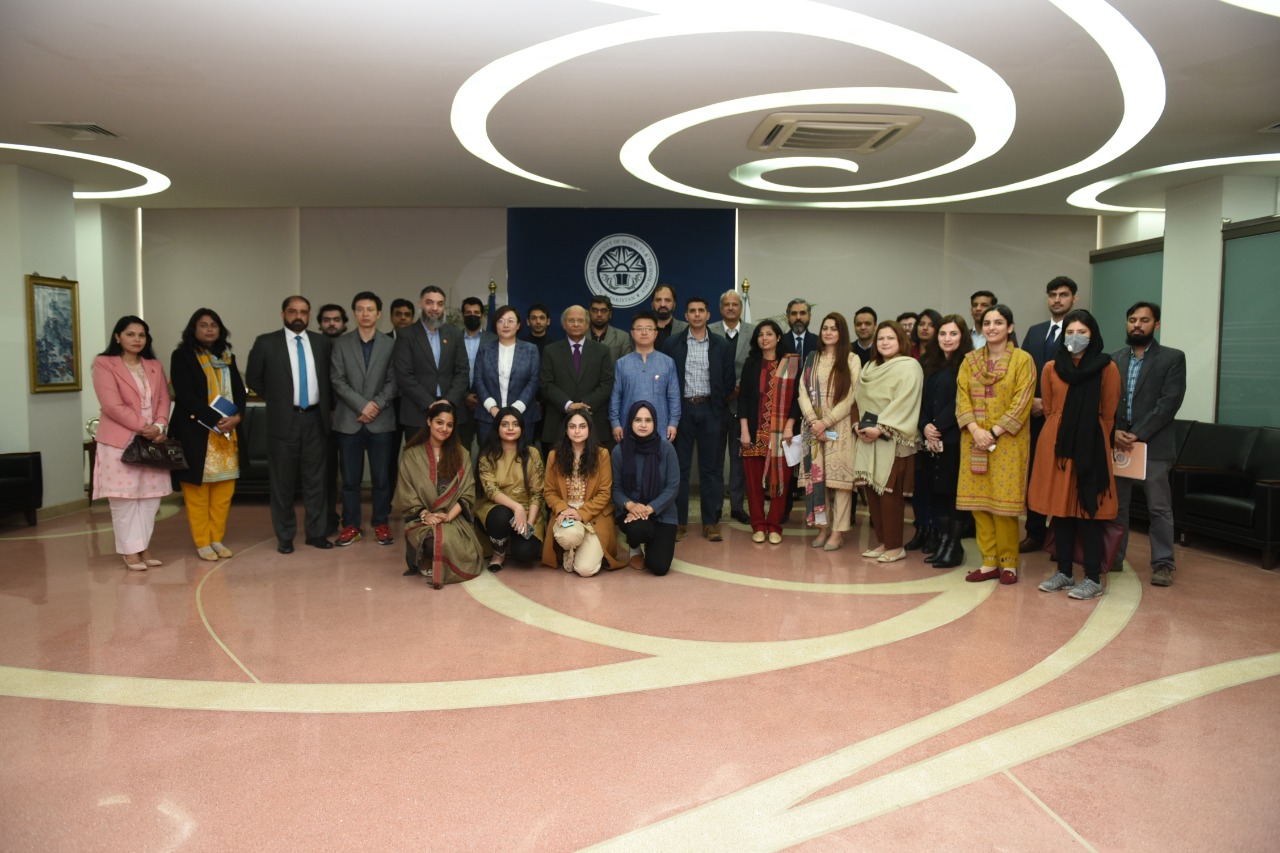Keynote Address by Dr Wu Jun on AI and IoT Technology for Smart City and Sustainable Society
-Share this story:
Islamabad March 3, 2022 – NUST Institute of Policy Studies (NIPS) and NUST China Study Center (CSC) co-organized the session on ‘AI and IoT Technology for smart city and sustainable society’ on Thursday, March 03. Keynote speaker from the world-renowned Chinese Academy of Sciences (CAS), Dr Wu Jun, discussed opportunities for Pakistan and China in the new era of artificial intelligence, technology and internet integration for building sustainable and smart cities. He elaborated that the concept of smart city was premised on an efficient and effective way of using AI system for surveillance to manage identification and safety measures in streets. The system helps protect safety of citizens besides providing management solutions for manpower and cost management. He also introduced deep learning analytical model for surveillance and digitization through AI coordinated structures, integration of technology and architecture through platform-X diffusion, edge computing and cloud platform in communities.
Dr Jun proposed a proactive approach to detecting crimes through facial recognition and posture identification, and crime intention through body language, thermal detection, and full surveillance of suspicious activities through AI camera and IoT system. He stressed upon the importance of these smart AI systems for timely detecting criminals through live feed. Further application of AI can be implemented in smart cities in different sectors like smart government, military, organizations, hospitals, prisons, education, agriculture and commerce to analyse data and hardware assimilation with software technology in communities where convenient access of data and information can be shared by all departments.
While mentioning 500 plus smart cities in China since 2014 under China’s strategic planning to promote industrialization, information and urbanization, he introduced smart city IoT as big neural network and brain data management platform connecting all hardware and sensors from street and traffic lights, cameras, Wi-Fi, electricity and real time data. He also discussed vast opportunities in AI weapon- smart drones for taking videos, low airspace autonomous defence system, auto detection, small radar and cameras, auto attack drones and air strike of surgical precision as countermeasure to terrorism.
The subsequent interactive session with NUST subject experts and students revolved around various opportunities and concerns regarding event’s theme. Key debate points included the role of government initiatives, misapplication of sensitive data, essential legislative environment, AI in water and energy sectors, integration of AI intelligence system in CPEC and future of smart city in Pakistan. In his concluding thoughts, Director General NIPS, Dr Ashfaque Hassan Khan, recommended stronger China-Pakistan collaboration on surveillance infrastructure and smart cities in Pakistan. The session was co-moderated by Director NIPS, Brigadier Amir Yaqub (Retd), and Director CSC, Ms Xiang Yang.




